Thupten Jinpa is adjunct professor at McGill University, has translated and edited numerous books, and is the author, most recently, of Essential Mind Training.
Donald S. Lopez Jr. is the Arthur E. Link Distinguished University Professor of Buddhist and Tibetan Studies at the University of Michigan.
The University of Chicago Press, Chicago 60637
The University of Chicago Press, Ltd., London
2014 by The University of Chicago
All rights reserved. Published 2014.
Printed in the United States of America
23 22 21 20 19 18 17 16 15 14 1 2 3 4 5
ISBN-13: 978-0-226-09197-6 (cloth)
ISBN-13: 978-0-226-09202-7 (e-book)
DOI: 10.7208 / chicago / 9780226092027.001.0001
The University of Chicago Press gratefully acknowledges the generous support of the University of Michigan toward the publication of this book.
Library of Congress Cataloging-in-Publication Data
Dge-dun-chos-phel, A-mdo, 19031951, author.
[Rgyal khams rig pas bskor bai gtam rgyud gser gyi thang ma. English]
Grains of gold : tales of a cosmopolitan traveler / Gendun Chopel ; translated by Thupten Jinpa and Donald S. Lopez Jr.
pages cm (Buddhism and modernity)
ISBN 978-0-226-09197-6 (cloth : alk. paper)ISBN 978-0-226-09202-7 (e-book) 1. BuddhismChinaTibet Autonomous RegionHistory. 2. Tibet Autonomous Region (China)History. I. Thupten Jinpa. II. Lopez, Donald S., 1952III. Title. IV. Series: Buddhism and modernity.
BQ266.D44 2014
954dc23
2013025540
 This paper meets the requirements of ANSI / NISO Z39.48-1992 (Permanence of Paper).
This paper meets the requirements of ANSI / NISO Z39.48-1992 (Permanence of Paper).
GRAINS OF GOLD
Tales of a Cosmopolitan Traveler

GENDUN CHOPEL
Translated by Thupten Jinpa
and Donald S. Lopez Jr.
The University of Chicago Press
Chicago and London
BUDDHISM AND MODERNITY
A series edited by Donald S. Lopez Jr.
RECENT BOOKS IN THE SERIES
From Stone to Flesh: A Short History of the Buddha by Donald S. Lopez Jr. (2013)
The Museum on the Roof of the World: Art, Politics, and the Representation of Tibet by Clare E. Harris (2012)
Bonds of the Dead: Temples, Burial, and the Transformation of Contemporary Japanese Buddhism by Mark Michael Rowe (2011)
Locations of Buddhism: Colonialism and Modernity in Sri Lanka by Anne M. Blackburn (2010)
In the Forest of Faded Wisdom: 104 Poems by Gendun Chopel, a Bilingual Edition, edited and translated by Donald S. Lopez Jr. (2009)
CONTENTS

Introduction
By Thupten Jinpa and Donald S. Lopez Jr.

All humans born in this world are given, through their past karma, a task that is suited for them. This [book] seems to be the humble task entrusted to me. Thus, wandering through the realms, I have expended my human life on learning. Its fruit has taken the form of a book.
Gendun Chopel, 1941
Aluvihra, sandy monastery, located in the highlands of Sri Lanka, holds a special place in Buddhist history. According to the traditional chronicles, it was there that the words of the Buddha, preserved for centuries only in the memories of monks, were for the first time committed to writing in the final decades before the Common Era. Two millennia later, in that same monastery, a less famous task of writing was completed. In this case, the purpose was not to preserve something old but to compose something new.
In 1941, a young destitute Tibetan, a former monk who had given up his vows, prepared a package. In it, he placed his lifes work, a manuscript of more than five hundred pages written over the previous seven years, together with hundreds of watercolors that he had painted, intended as illustrations for the book he had composed. A stranger in a strange land, he was the only Tibetan living in Sri Lanka and so could not entrust the package to a compatriot. Instead, he sent it off to his homeland in the far northeastern corner of Tibet, over three thousand miles away. Carried by ship, train, and yak, the package crossed seas, mountains, and deserts to arrive at its destination. He called the book Grains of Gold: Tales of a Cosmopolitan Traveler.
The package reached its destination but his words remained unread. In 1946, the author returned to Tibet and was promptly thrown into prison for three years. He died in 1951. In 1959, the Dalai Lama fled to India, never to return. For a decade beginning in 1967, Tibet, like China, was ravaged by the Cultural Revolution. Finally, in 1990, during a brief relaxation of Chinese restrictions on Tibetan literature, Grains of Gold was published in its entirety for the first time, fifty years after its composition. It was published without its illustrations; during the Cultural Revolution, all but twenty-seven of some two hundred watercolors had been lost. It is recognized today as perhaps the greatest work of Tibetan letters of the twentieth century. It is translated here for the first time.
Who was Gendun Chopel and why did he write this book? Neither question is easy to answer. Indeed, Grains of Gold deserves an entire monograph to explore its origins, its legacies, and its myriad fascinations. This introduction can only offer a hint of these.
Gendun Chopel was born in Amdo (modern Qinghai Province) in 1903, not far from the birthplace of Tsong kha pa (13571419), the famous founder of the Geluk, the newest of the four major sects of Tibetan Buddhism. His father was a mntrika, a priest and practitioner of the Nyingma or ancient sect of Tibetan Buddhism, which traces its roots to the mythically potent but historically problematic visit to Tibet by the Indian tantric yogin Padmasambhava in the late eighth century. The theme of the new and the old, the modern and the ancient, would appear again and again throughout Gendun Chopels life.
Gendun Chopel was something of a child prodigy and was identified as an incarnate lama (tulku) of the Nyingma sect as a young boy. Not long after his fathers death, he entered the local Geluk monastery, before moving in 1920 to the great regional monastery of Labrang Tashi Khyil, where he excelled in the formal debates that are so central to the monastic curriculum. In the philosophical hierarchy of Tibetan Buddhism, the tenets of the Indian Buddhist schools are considered superior to those of the non-Buddhist Indian schools of Hinduism and Jainism. In the debating courtyard, Gendun Chopel became famous, even notorious, for his ability to hold and defend non-Buddhist positions, defeating monks who held Buddhist positions. He was eventually invited to leave the monastery.
In 1927, he left his home region of Amdo, never to return. Accompanied by an uncle and a cousin, he set off on the four-month trek to the capital of Tibet, Lhasa, where he enrolled at Drepung, the largest monastery in the world, having over ten thousand monks. Again he excelled in debate, but fell into shouting matches with his teacher, the eminent scholar and fellow native of Amdo, Sherap Gyatso (18841968), who eventually refused to call him by name, addressing him only as madman. During his time in Lhasa, Gendun Chopel seems to have supported himself as a painter, attracting the attention of Phabongkha Rinpoch (18781941), the most powerful Geluk lama of the day. It was during this period that he became friends with Trijang Rinpoch (19001981), with whom he shared a love of poetry. Trijang Rinpoch would go on to become the tutor of the fourteenth Dalai Lama.
Next page

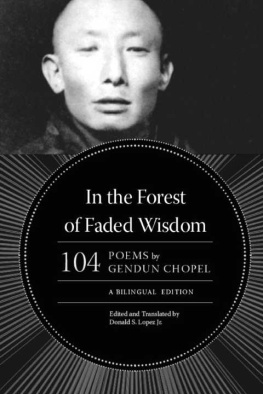
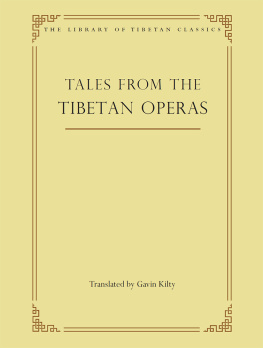
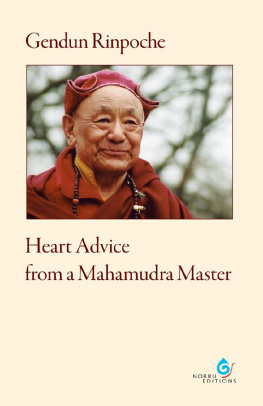
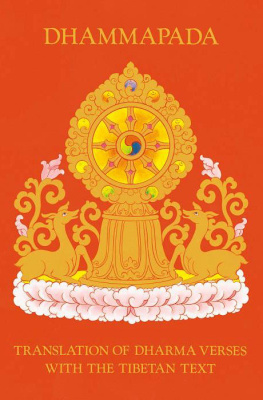

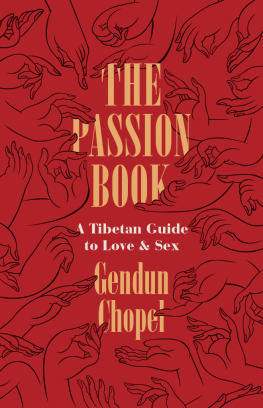
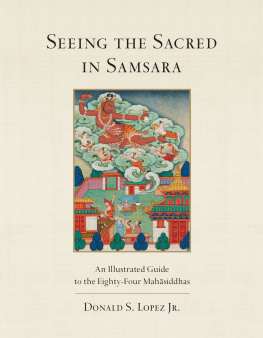
 This paper meets the requirements of ANSI / NISO Z39.48-1992 (Permanence of Paper).
This paper meets the requirements of ANSI / NISO Z39.48-1992 (Permanence of Paper).
